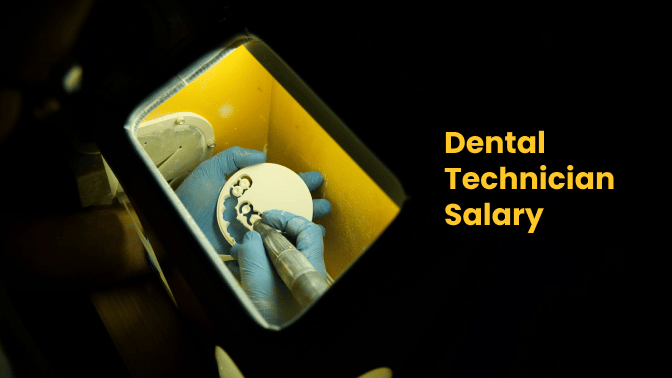Dental care is essential to overall health, yet it is often overlooked or taken for granted. The mouth is a gateway to the body, making it imperative to maintain health. Good dental hygiene practices, such as brushing, flossing, rinsing, and regular dental check-ups, are crucial in preventing dental diseases and ensuring overall wellness.
This article explores the daily rituals of dental care.
The Importance of Regular Dental Hygiene Practices
Regular dental hygiene practices are crucial for maintaining oral health and preventing dental problems. Brushing teeth at least twice daily plays a vital role in this routine. It helps remove dental plaque and bacteria, which are the primary causes of tooth decay and gum disease. The mechanical action of brushing disrupts the biofilm of bacteria on the teeth, preventing the formation of harmful acids that erode tooth enamel.
Flossing complements brushing by targeting the areas between teeth and under the gum line – regions that are difficult for a toothbrush to reach effectively. Daily flossing removes trapped food particles and plaque, reducing the risk of cavities and gum disease. Moreover, rinsing with an antibacterial mouthwash offers further benefits. It helps eliminate bacteria that cause bad breath, providing fresher breath and adding an additional layer of protection against gum disease.
Collectively, these daily practices are fundamental in maintaining oral hygiene, preventing the onset of serious dental issues, and ensuring overall oral health. Regular adherence to these habits can significantly lower the risk of developing dental caries, periodontal disease, and other oral health complications, contributing to a healthier mouth and a better quality of life.
The Benefits of Regular Dental Check-ups
Regular dental check-ups are as important as daily hygiene practices. Dental professionals can detect early signs of oral diseases, often not visible or painful until they are advanced. Regular visits allow for prompt treatment, preventing the progression of these diseases.
Additionally, dental cleanings remove tartar build-up, which cannot be achieved by brushing and flossing alone. They can help prevent periodontal disease and tooth decay. Regular check-ups also allow dentists to offer personalized advice on dental care based on individual oral health needs.
These check-ups are integral to maintaining long-term oral health and catching potential problems before they escalate. Indeed, the benefits of visiting the dentist are extensive, as dental professionals provide comprehensive care crucial for maintaining oral health.
Brushing: Techniques and Tips
Effective brushing is a cornerstone of dental hygiene. It involves using the right tools and techniques. A soft-bristled toothbrush is recommended to prevent gum irritation and enamel wear. When brushing, covering all tooth surfaces, including the outer, inner, and chewing surfaces, is essential. Using fluoride toothpaste enhances tooth enamel strength, offering extra protection against decay. The technique is equally crucial – gentle, circular motions effectively dislodge plaque without damaging the gums. Brushing should last at least two minutes, ensuring thorough cleaning.
Furthermore, toothbrushes should be replaced every three to four months or sooner if bristles become worn out. Frayed bristles lose their effectiveness and can harbor bacteria. These practices can help maintain a clean, healthy mouth and prevent dental problems.
Flossing: A Critical Step in Dental Hygiene
Flossing is pivotal in dental hygiene, targeting areas typically missed by brushing. It involves the removal of plaque and food particles from the interdental regions and under the gumline. This is essential because these areas are prone to plaque accumulation, leading to tartar formation, gum disease, and tooth decay if not cleaned regularly.
Proper flossing technique is crucial as it involves gently inserting the floss between the teeth and curving it into a ‘C’ shape against the side of each tooth. This action ensures the effective removal of trapped debris and plaque. Flossing once daily is recommended, ideally before bedtime, to ensure the teeth are clean over the night. By integrating flossing into the daily routine, individuals can significantly reduce the risk of periodontal diseases and maintain healthier gums and teeth.
Rinsing: Completing the Oral Hygiene Routine
Rinsing with an antibacterial mouthwash is an essential adjunct to the daily oral hygiene regimen. It is a supplementary measure to brushing and flossing, targeting residual bacteria in the mouth. Mouthwash helps reduce the bacterial load, a primary cause of dental plaque, bad breath, and gum disease. It also assists in flushing out loose particles and debris.
Moreover, many mouthwashes contain specific ingredients that strengthen tooth enamel, prevent tooth decay, and promote oral health. However, it’s important to note that rinsing with mouthwash does not replace brushing and flossing but complements these practices. Regular use of mouthwash can lead to fresher breath and a cleaner feeling of mouth, providing an additional barrier against oral health issues.
Takeaway
The daily rituals of dental care, including brushing, flossing, rinsing, and regular dental visits, are fundamental to maintaining oral health. These practices prevent dental diseases and contribute to overall health and well-being. By adhering to these routines and understanding the importance of each step, individuals can ensure a healthier, brighter smile and a healthier life.
